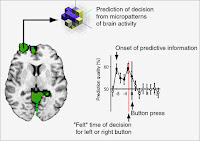Two Internship Openings with Emory's Neuroethics Program for Spring 2013!

NEUROETHICS INTERNSHIP OPENINGS Are you interested in the ethical and social implications of neuroscience? The Emory Neuroethics Program invites you to apply for a Neuroethics Internship. We are looking for up to two self-motivated, creative, and organized individuals who are interested in topics that fall at the intersection of neuroscience, society, and ethics. The Neuroethics Program is a community of scholars at the Emory University Center for Ethics who explore the ethical and social implications of neuroscience and neurotechnology. You can be part of that exciting team. The Center for Ethics at Emory is an interdisciplinary hub that collaborates with every school at Emory University as well as local universities and the private and public community. The Center for Ethics houses The American Journal for Bioethics Neuroscience, the premier journal in Neuroethics. The director of the Center for Ethics, Dr. Paul Root Wolpe, is one of the founders of the field of Neuroethics as well


